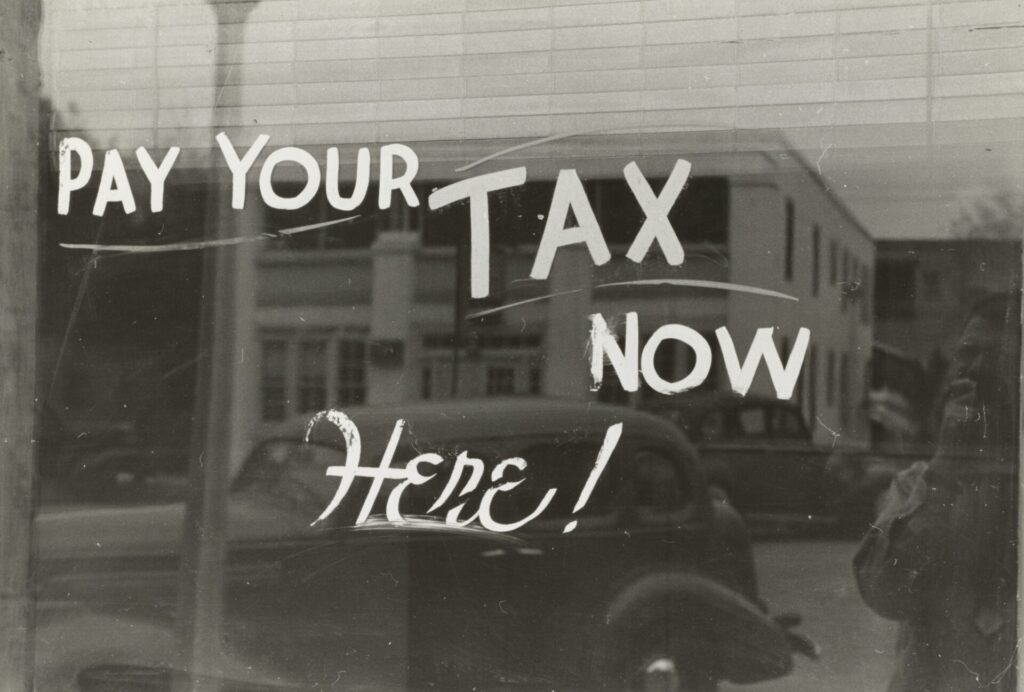Selling a home can be a significant financial event, and understanding capital gains tax when selling your home, is crucial to navigating this process. But why do you pay capital gains tax? In simple terms, it’s a tax on the profit you make from selling an asset, such as your property.
This blog post aims to demystify capital gains tax, breaking down what it is, when it applies, how to calculate it, and ways to minimise its impact. Whether you’re selling a primary residence or an investment property, understanding these concepts will help you make informed decisions and potentially save money.
What is Capital Gains Tax?
Capital Gains Tax (CGT) is charged on the profit you make when selling or disposing of an asset that has appreciated in value. Importantly, it’s the increase in value that gets taxed, not the total sale amount. When it comes to property, CGT typically applies to sales of homes that are not your main residence, such as second homes or buy-to-let properties.
The rate at which you’re taxed on these gains can vary based on your overall taxable income and the nature of the asset sold. For individuals, the rates differ from those applied to limited companies. While individuals might pay CGT at rates of 10% or 20%, depending on their income, limited companies are subject to Corporation Tax on their capital gains, which has its own set of rules.
In the UK, understanding the specifics of these tax rates is vital. For example, higher-rate taxpayers could face higher CGT rates. Making it even more crucial to plan accordingly. Additionally, limited companies with property investments need to navigate different regulations and tax implications compared to individual investors.
Understanding these distinctions is key to effective tax planning. Helping you manage your finances more efficiently when selling property. Whether you’re an individual or a limited company, knowing how CGT works can significantly impact your financial outcomes.
When Does Capital Gains Tax Apply?
Capital gains tax comes into play when you sell or dispose of a property that isn’t your main residence. For most homeowners, selling their primary home is exempt from CGT due to Private Residence Relief. However, there are specific circumstances where CGT might still apply. Such as if the property was rented out or used for business purposes at any time.
For those with investment properties, such as buy-to-let homes, CGT becomes relevant upon the sale of the property. It’s important to note that limited companies owning properties also face capital gains tax, but the rules and tax rates for companies differ from those for individuals. Knowing these distinctions can help you better understand your tax obligations.
Capital Gains Tax: what you pay it on, rates and allowances: Overview – GOV.UK (www.gov.uk)
Even in cases where you think CGT might not apply, it’s crucial to review your specific situation. For example, if you’ve moved out of your main residence and then sold it after some time, or if part of the property was used exclusively for business, you may have to pay CGT on part of the gain.
Understanding when CGT applies ensures you are prepared and compliant, and helps you make strategic decisions when selling properties. Always consider the specific use of the property and any changes in its status over time to determine your CGT responsibilities accurately.
How to Calculate Capital Gains
Calculating capital gains involves determining the difference between the property’s sale price and its original purchase price, including associated costs. Begin by identifying the purchase price and add costs such as stamp duty, legal fees, and any significant improvements made over the years.
Next, from the sale price, subtract the initial purchase price along with these added costs. Also, account for costs incurred during the sale, like estate agent fees and solicitor charges. This calculation will give you the capital gain.
If the property has served as your primary residence, you may qualify for reliefs that can reduce the taxable gain. The HMRC website offers calculators and guidelines to assist with these calculations, ensuring you include all relevant expenses and reliefs.
Always remember, accurate record-keeping of all transactions and improvements related to the property will make this process smoother and more precise.
Exemptions and Reliefs Available
Several exemptions and reliefs are available to help reduce your capital gains tax liability. The primary relief is Private Residence Relief, which applies when selling your main home. This relief exempts the gain made from selling your principal residence, provided you have lived in the property throughout your period of ownership.
If you have let out your home, Lettings Relief might be available. This relief is beneficial if the property was your primary residence at some point before being rented out. It can reduce the taxable gain, easing the financial burden.
Additionally, every individual is entitled to an annual tax-free allowance for capital gains. This allowance, known as the Annual Exempt Amount, can offset some of your gains, reducing the overall tax you owe. For the current tax year, the allowance is £12,300, though it’s always wise to check for any updates or changes in subsequent years.
Understanding Capital Gains When Selling Your Home
For those selling part of their property, such as land or a separate flat within their main home, it’s possible to claim partial relief. This can be especially useful if the sale doesn’t affect the main residence status of the remaining property.
Navigating these exemptions and reliefs can significantly affect your tax obligations. Whether you’re selling a buy-to-let property or your former home, understanding these options ensures you’re taking advantage of all available avenues to minimise your capital gains tax.
Reporting and Paying Capital Gains Tax

Photo by The New York Public Library on Unsplash
Once you’ve calculated your capital gains tax liability, you need to report it to HMRC promptly. For UK residents, this involves completing a self-assessment tax return. It’s crucial to declare the gain in the same tax year as the property sale, ensuring you meet the self-assessment deadline.
For non-residents selling UK property, the reporting requirements are slightly different. You must report the sale and pay any CGT due within 30 days of completion. HMRC offers various resources and guidance to help you navigate these specific obligations and avoid potential penalties.
Accurate record-keeping is essential throughout this process. Ensure you keep detailed records of your property’s purchase price, any improvement costs, and all associated selling expenses. This will aid in accurately calculating your capital gains and fulfilling your reporting duties.
If you’ve claimed any reliefs or exemptions, such as Private Residence Relief or Lettings Relief, make sure these are clearly documented in your submission. HMRC may request evidence of your eligibility, so having organised records will streamline this process.
Remember to take advantage of online tools and calculators available on the HMRC website to assist with your calculations. These resources can provide clarity and help you ensure that all relevant costs and allowances are factored into your final figure, ensuring accurate and compliant reporting.
Tips for Reducing Capital Gains Tax
Careful planning can significantly reduce your capital gains tax liability. One effective strategy is to consider the timing of your sale. By spreading sales over different tax years, you can maximise the use of your annual CGT allowance, reducing the amount of taxable gain each year.
Another approach is to transfer ownership of the property to a spouse or civil partner before selling. This allows you to utilise both parties’ tax-free allowances, potentially halving your tax liability. It’s a straightforward yet impactful way to optimise your tax position.
Investing in home improvements before selling is another practical tip. By increasing the property’s cost basis through upgrades, you can effectively reduce the overall gain and, consequently, the amount of tax you owe.
Ensure you claim all available reliefs and exemptions. Private Residence Relief, Lettings Relief, and the Annual Exempt Amount can significantly ease your tax burden. Always keep detailed records of all related expenses and improvements to substantiate your claims.
By incorporating these strategies, you can make informed decisions that help minimise your capital gains tax, ultimately allowing you to retain more of your profits.
Seeking Professional Advice
When it comes to managing capital gains tax, professional advice can be invaluable. Tax advisors and accountants bring expertise that helps you navigate the intricacies of tax regulations, ensuring you don’t overlook any critical details. Their guidance is especially beneficial for those with multiple properties or complex situations, such as mixed-use properties or intricate investment portfolios.
A tax professional can assist with accurate calculations, ensuring all eligible expenses and reliefs are accounted for. They can also offer strategic advice, such as the optimal timing of property sales or how to structure ownership transfers to maximise tax benefits. This tailored support can make a significant difference in your overall tax liability.
Furthermore, professionals stay updated with the latest tax laws and HMRC guidelines, providing you with the most current information. This ensures that your tax planning is both compliant and efficient, potentially saving you from costly mistakes or penalties.
Engaging a tax advisor or accountant doesn’t just help with the immediate sale; it also provides long-term benefits. They can assist with ongoing tax planning and future property investments, helping you make informed decisions that align with your financial goals.
Investing in expert advice can often lead to savings that far exceed the cost of their services, making it a prudent choice for anyone looking to sell property while minimising capital gains tax.
Understanding Capital Gains When Selling Your Home
Has that helped? Don’t worry. If you are just selling your main residence, you do not pay a penny. Need your home valued? Click here to book or call us on 01327 624275 for Daventry or 01788 486100 for Rugby.




